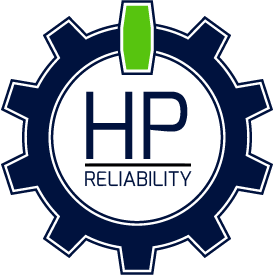The Impact of Industry 4.0
Industry 4.0 has two notable waves. The first constitutes of the Internet of Things (IoT) and Big Data. The second wave is what we re currently experiencing and constitutes of Artificial Intelligence, Augmented and Virtual Reality.
Blair Fraser of Quartic.ai shares some important insights on the significance of Industry 4.0 as well as:
- Its benefit in the industry
- The technologies behind Industry 4.0
- How Artificial Intelligence Works
- Considerations before diving into the new wave
- Pitfalls and ways to avoid a mismatch in the technology fit
The Benefits of AI in Industry
Industry 4.0 promises resilience in the way data is understood. In preceding generations, data from sensors and controllers was static. Tools under artificial intelligence, on the other hand, can make data more dynamic through manipulation to derive understanding.
The second benefit of AI is that it makes insights more holistic. Rather than focusing on data from a pump alone, AI incorporates other system-level activities to create more reliable information.
Processing power might be the only significant barrier to the performance of this new wave of technologies.
Technologies that go into the implementation of Industry 4.0
Other significant technologies include:
- Big Data, which refers to data that comes from previously disconnected silos, as networks improve
- IIoT. The industrial Internet of Things refers to a new generation of networked sensors with access to the internet
To make the most out of Industry 4.0, it is important to be clear on your requirements for the technology. You should ask yourself:
What question am I asking AI to solve? The more specific the question, the better it is to design a solution around it.
What is the outcome of successful implementation of Industry 4.0 Strategies
Among the immediate benefits of implementing these strategies is a reduction in planned downtime. From a deeper understanding of equipment performance trends, AI can help operators understand degradation rates better and improve on efficiency.
Process optimization is another visible benefit. A system-level approach to equipment performance can help derive better insights into improving operations.
Prediction algorithms can also help enhance preventive maintenance strategies. The presence of dynamic data analysis allows the AI to verify scenarios that can lead to failure. Once defined, all this analysis can go on in the background without a lot of human intervention.
Considerations to make before diving in
Big Data, AI, and IoT have become trendy phrases, yet few people still understand how to get started working with them. At an industrial level, the same perception is not uncommon.
It is not difficult to get started. Like any research project, you should be clear about your needs. Ask yourself:
- What specific equipment or process is under consideration?
- What is the key challenge with the equipment or process?
- What data is currently coming out of that particular system?
- What improvements do I need from this system? (Be as specific as possible)
From here proceed to implement a proof of concept with the least resources. You don t need to be a fully-fledged data scientist to create an AI model. You only need to have an understanding of maths and basic statistics to get started.
Common pitfalls to avoid when implementing Industry 4.0 strategies
Do your due diligence before implementation. Make sure you have defined your needs to be as specifics as possible.
Get support from the top management, and have buy-in from the team members. Ensure you maintain clear communication and involve the people who will be end-users.
The IT department plays an important role in deploying AI infrastructure. Involve them as early in the project as you can.
The main take-home from this episode is that you need to focus on solving the right problem, not just building AI.
Eruditio Links:
Blair Fraser Links:
Rooted In Reliability podcast is a proud member of Reliability.fm network. We encourage you to please rate and review this podcast on iTunes and Stitcher. It ensures the podcast stays relevant and is easy to find by like-minded professionals. It is only with your ratings and reviews that the Rooted In Reliability podcast can continue to grow. Thank you for providing the small but critical support for the Rooted In Reliability podcast!
The post 185-The Impact of Industry 4.0 with Blair Fraser appeared first on Accendo Reliability.

